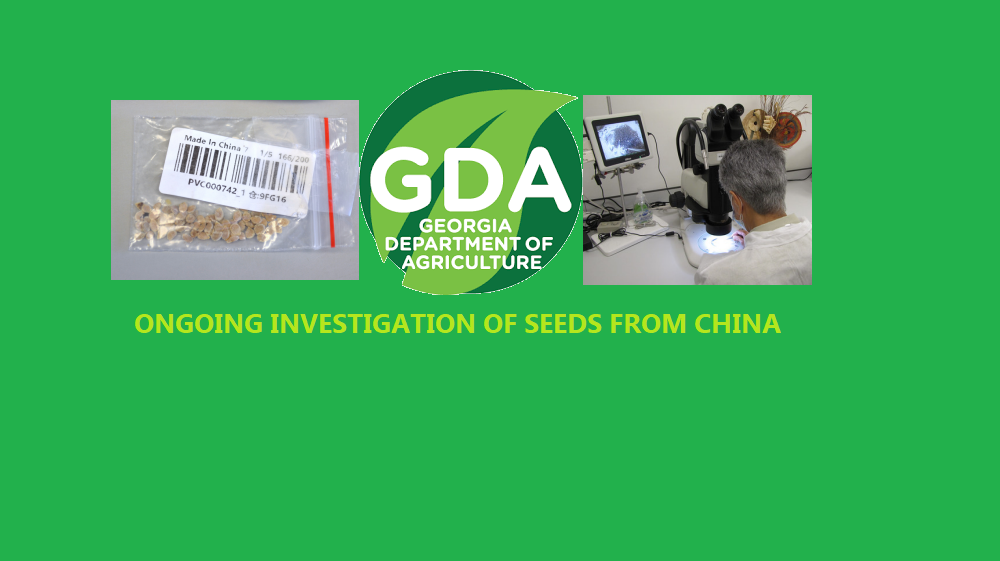
The Georgia Department of Agriculture has created a portal for Georgians to connect with state agency officials as well as the U.S. Department of Agriculture if they receive unsolicited seeds from China.
The state agency headed by Commissioner Gary Black said the online resource was developed for reporting and instructing individuals how to properly dispose of the seeds. The department did so after receiving considerable inquiries about the unsolicited packages as well as reports that Georgians have been among those to receive seeds from China.
“Thankfully, our seed lab has not found anything nefarious in the mysterious packets so far, but that does not mean we should let our guard down,” Georgia Agriculture Commissioner Gary W. Black said in a press release. “I urge anyone who receives a package, that they do not remember ordering, to treat it with care and caution. And most importantly, do not plant, throw away or flush the seeds.”
The packages were sent by mail and may have Chinese writing on them. The types of seeds in the packages are unknown at this time and may be invasive plant species. The United States Department of Agriculture is investigating the origin and identity of these seeds. According to the federal agency, “At this time, we don’t have any evidence indicating this is something other than a “brushing scam” where people receive unsolicited items from a seller who then posts false customer reviews to boost sales. USDA is currently collecting seed packages from recipients and will test their contents and determine if they contain anything that could be of concern to U.S. agriculture or the environment.”
Georgia residents who have received these unsolicited seeds are encouraged to visit the state website to complete and submit a form and then ship seed and packaging materials to the U.S. Department of Agriculture. Recipients looking to destroy the seeds, even those that have already been planted, can follow the directions in the proper disposal document.
Seeds from unknown origins have the potential to be invasive or carry seedborne pathogens that can have the potential to cause disease in either seeds or the developing plants. People across the country have received unsolicited packages of seeds from overseas.


Chattooga Opinions
Medically Supervised Weight Loss: Inside Premier Weight Loss & Medispa

Chattooga Local News
Georgia Power Files Plan for Customer Rate Decrease with Public Service Commission

Chattooga Local Government
Carr Pushes for Permanent Halt of Medicare and Medicaid Funding for Child Sex-Change Procedures

Bulloch Public Safety
02/20/2026 Booking Report for Bulloch County

Bulloch Public Safety
01/26/2026 Booking Report for Bulloch County

Bulloch Public Safety
02/09/2026 Booking Report for Bulloch County

Bulloch Public Safety
02/16/2026 Booking Report for Bulloch County

Bulloch Public Safety
02/02/2026 Booking Report for Bulloch County

Bulloch Public Safety
01/30/2026 Booking Report for Bulloch County





